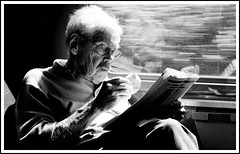 I have been following with great interest the recent visit of the New York Philharmonic to North Korea. I have read a lot about this performance, both pro and con. I think my fascination in this stems from my own visits to Eastern Europe, prior to the fall of Communism, more than 20 years ago.
I have been following with great interest the recent visit of the New York Philharmonic to North Korea. I have read a lot about this performance, both pro and con. I think my fascination in this stems from my own visits to Eastern Europe, prior to the fall of Communism, more than 20 years ago.I remember those visits so starkly; the contrast of oppression and freedom, darkness and light. The bland expanses of centrally planned Eastern Block architecture, the attempts to immortalize communist leaders, and the looks of resignation on the faces of the people we saw, these are the memories I will never forget.
Today, North Korea, with its highly centralized system and tight controls on the daily lives of its people, remains firmly in the grip of its leader, Kim Jong-il. He and his father, Kim Il-sung, are the subjects of a personality cult that requires portraits in every home and their images on lapel pins on the jackets of every official. Huge statues of the older Kim dominate cities (shown above, click to enlarge). The state operates what human rights experts say is a vast gulag of labor camps, many filled with the ideologically suspect and their families.
 Into this comes the New York Philharmonic, playing the music of Freedom. Dvorak's New World Symphony, and George Gershwin's "American in Paris." Dvorak's New World symphony has always been quite moving to me; I think it speaks of freedom. It was written by the composer while here in the US between 1892 and 1895. For more details see this.
Into this comes the New York Philharmonic, playing the music of Freedom. Dvorak's New World Symphony, and George Gershwin's "American in Paris." Dvorak's New World symphony has always been quite moving to me; I think it speaks of freedom. It was written by the composer while here in the US between 1892 and 1895. For more details see this."It is a role of the highest possible order: bringing peoples and their cultures together on common ground, where the roots of peaceful interchange can imperceptibly but irrevocably take hold. If all goes well, the presence of the New York Philharmonic in Pyongyang might gently influence the perception of our country there. If we are gradually to improve U.S.-Korean relations, such events have the potential to nudge open a door that has been closed too long."I have posted a clip of the actual PyongYang concert below - it is haunting to watch the elite of a totalitarian state listen to music composed in the Land of the Free.
The music of freedom. Millions still long to hear it in their hearts. My prayer is that someday, like the millions of Eastern Europe, freedom might ring throughout the Korean peninsula. Until then, listen for the music of freedom.






